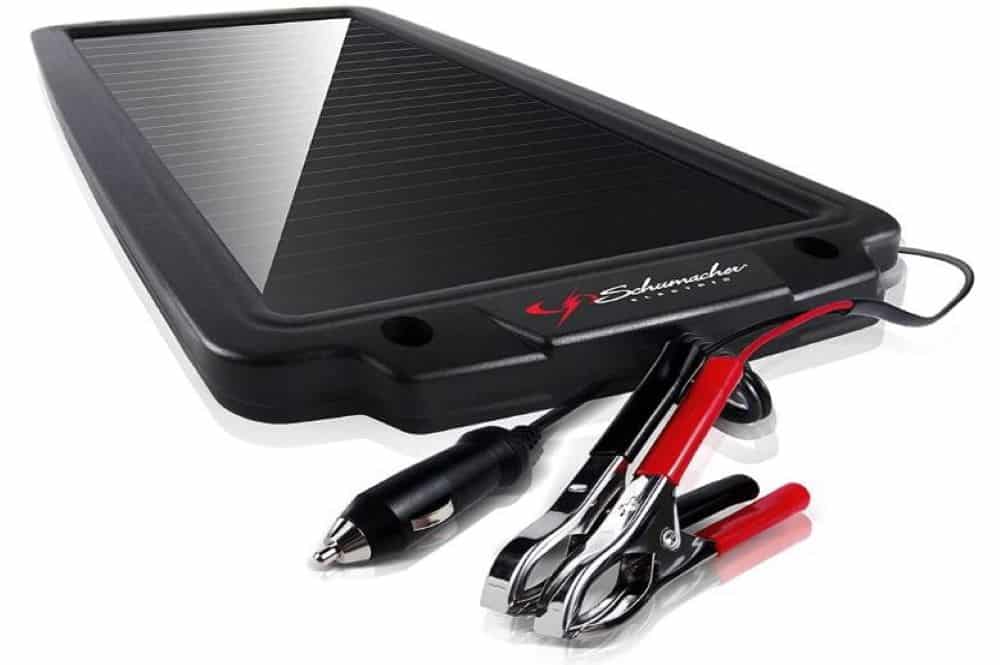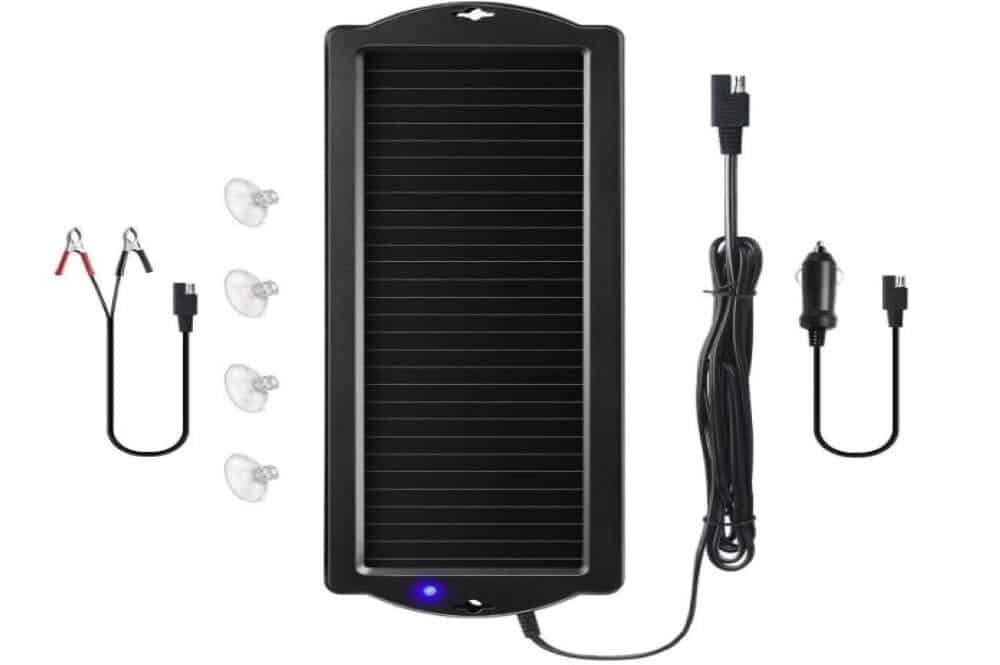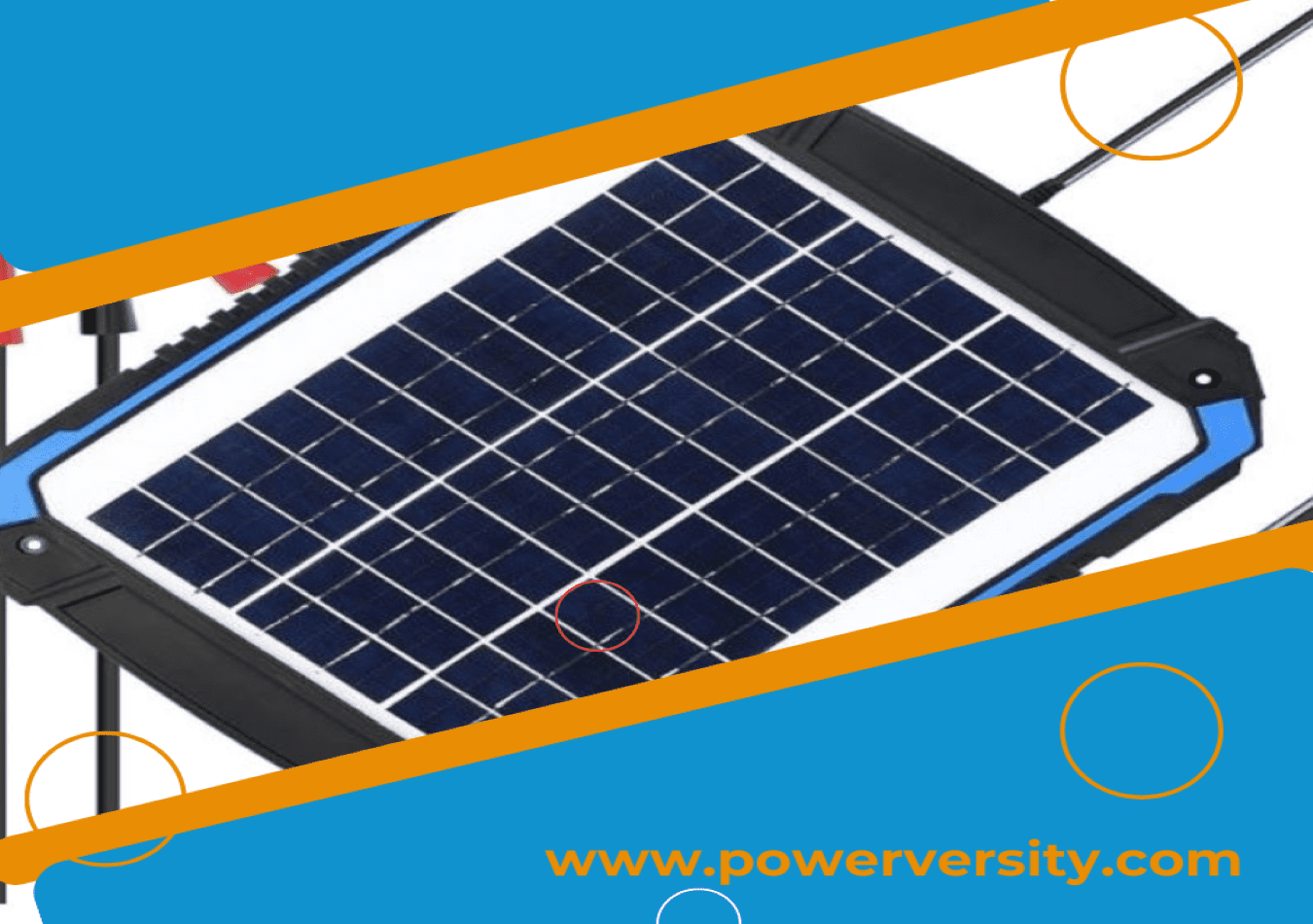Are you in doubt about choosing the 5 best solar chargers for your car? Read through this Powerversity buying guide on the 5 best car solar chargers to help clear your doubts.
This PowerVersity buying guide selects the 5 best car solar chargers you can depend on when choosing any.
First, I will pick my products, starting with the 5th car solar charger. Then we will move on in descending order until we get to the best.
However, to get the best on my lists, stay around till the end of this article.
For clarity, this article is written in different sections. Each section will provide detailed information about buying a solar car charger.
The first section will be an overview of the topic. In this section, I will explain the meaning of a solar car charger.
In the next section, you will understand the various benefits and setbacks of using a solar car charger. Then, we will move to the features and factors to consider section.
Furthermore, we will present the various specs and comparisons of each selected product in tabular form.
Hence, I will move to the section explaining my 5 best car solar chargers in detail. Also, I will highlight the pros and cons of each product.
Finally, we will share my final thoughts with you. Therefore, let’s ride on.
What Is A Solar Charger?
When you hear of a solar car charger, the first thing that comes to mind is, “WHAT IS A SOLAR CHARGER?”…
This article will help you solve that curiosity with a detailed explanation of all you need to know about solar chargers.
A solar charger is a charger that uses solar energy to supply electricity to devices or batteries. More so, they are generally portable.
However, solar energy, in this regard, converts sunlight into usable energy forms.
Even so, several steps are involved in catching the energy that comes from the sun and converting it into electrical energy.
In addition, photons from the sunlight help carry enough energy to push the electrons from their orbits in some elements (silicon).
Furthermore, solar battery chargers do not charge the lithium-ion battery in your devices directly.
Instead, it charges an internal rechargeable battery in the device.
Hence, it is charged through the solar modules and then distributed to your gadget to avoid requiring an external electrical source.
5 Best Car Solar Chargers: Pros And Cons
Pros
Lightweight
Solar battery chargers are usually very light and portable. Hence, they are easy to carry about.
On the other hand, it often weighs four to five pounds, making it easy to use and not burden the users.
Application
Unlike standard chargers that require an outlet, a solar battery charger works theoretically when the vehicle moves.
You can conveniently plug the 12-volt socket into the car’s dashboard and position the solar panel on it to absorb the maximum amount of sunlight.
Versatility
Solar chargers are useful for car batteries, standard boats, ATVs, personal watercraft, and any vehicle that uses a 12-volt battery. Also, it has alligator clips that can be attached to battery terminals directly.
It Is Self-contained
A solar battery charger requires no outside power source to supply the battery with a charge because it is powered by the sun.
Even so, it converts absorbed solar energy into DC power and then transfers it immediately to the battery, thus, keeping it charged and prepared simultaneously.
Durable
A solar battery charger can operate in all weather conditions, from temperatures beyond 120 degrees Fahrenheit or even more. This means that the solar battery charger will work even when it is freezing in the middle of the summer.
Also, they are low-powered. Hence, they work well as maintenance chargers.
Even so, it is eco-friendly. Thus, it helps you reduce your carbon footprint.
More so, it can help prolong a stationary vehicle’s life cycle.
Cons
- A solar battery charge also has some disadvantages that serve as a drawback to its benefits, and they include:
- The power of a solar charger cannot be compared to that of a regular battery charger. This is because they are not as powerful as regular battery chargers. Hence, it takes more time to charge the batteries.
- Also, it gives out minimal current; it is more useful for maintaining a charge than charging a completely drained battery.
- However, you must be cautious if relying solely on a solar battery charger.
Factors To Consider When Buying The Best Car Solar Chargers
Size
Solar chargers are available in different sizes. Therefore, the more power you need, the bigger the size of the charger.
For a car battery, you may need to buy a 12-volt battery charger, as it’s usually easy to carry and lightweight.
You can keep it inside the car and carry it around easily. Moreover, it has enough capacity to sustain bigger things like cars, bikes, boats, etc.
Cables And Connectors
You tend to have various options when you have a solar battery charger with multiple connectors. Also, you must consider the size of the power cable.
The solar battery charger is a fantastic idea that may help us become more environmentally conscious by harvesting solar energy.
As a result, investing in it may be the best way to reduce your carbon footprint and make the most of the sun.
Power
Solar battery chargers typically range from 2 to 18 volts. As a result, those with higher powers may be charged rapidly, while those with lesser powers do not risk overpowering your battery.
Efficiency
This is important because an efficient battery charger harnesses solar energy quickly. Thus, you do not have to worry about not getting enough sun.
Therefore, they are also useful in winter, when you have comparatively less sun.
Comparison and Specifications of the 5 Best Solar Car Chargers:
5Schumacher SP-200 Solar Battery Charger and Maintainer

The fifth of my picks of the 5 best car solar chargers is the “Schumacher SP-200 Solar Battery Charger and Maintainer.”
It is a solar-powered panel battery maintainer that utilizes amorphous solar technology to convert sunlight into power. Also, it is compatible with lead-acid batteries.
Even so, it is easy to use with its simplified, environmentally-safe design that offers plug-and-play usability and requires minimal maintenance.
More so, resistant to light rain and water splashes. However, do not submerge.
Furthermore, it delivers a 2.4-watt trickle charge to boats, cars, motorcycles, snowmobiles, trucks, and other 12V batteries.
Lastly, it does not require electricity. All you need to do is charge the maintainer by placing it panel-side up in an area exposed to daylight.
Moreover, it works in sunny and cloudy conditions.
Pros
- It is solar-powered.
- Also, it is easy to use.
- More so, it is water-resistant.
- Additionally, it does not require electricity.
- Finally, it delivers a 2.4-watt trickle charge to cars, boats, and other 12V batteries.
Cons
- The manufacturer did not specify the product warranty.
4MEGSUN 12 Volt 10W Solar Car Battery Maintainer

The fourth of my picks of the 5 best car solar chargers is the “MEGSUN 12 Volt 10W Solar Car Battery Maintainer.”
It has a built-in blocking diode that prevents reverse charging, and the battery reverses discharging. Also, it keeps the battery from draining dead and extends its usage life.
More so, it is a solar car battery maintainer with monocrystalline solar cells at a peak of 23% efficiency. Even so, the persuasive power generation rate is higher than polycrystalline amorphous in the same area.
In addition, it uses ultra-clear, durable, low iron tempered glass, which has a robust light transmission. Moreover, it can resist hail, rain, and snow and is easy to clean.
Furthermore, it is windproof and waterproof, but it can not be immersed in water. However, it can charge all kinds of 12V batteries, and it’s suitable for vehicles for outdoor work, travel, or camping training.
Finally, it is ideal for daily battery maintenance in automobiles, ships, motorcycles, agricultural vehicles, snowmobiles, beach cars, and trucks.
Pros
- It has a 23% high conversion efficiency.
- Also, it is durable and waterproof.
- More so, it has reverse protection and battery maintenance.
- Additionally, it can charge all kinds of 12V batteries.
Cons
- It can not fully charge your car’s battery.
3Sunway Solar Car Battery Trickle Charger & Maintainer

3rd on my list of the 5 best car solar chargers is “Sunway Solar Car Battery Trickle Charger & Maintainer.”
This solar-powered battery charger is covered with ultra-clear PV glass, which is more efficient. Also, it has a durable ABS plastic housing, which strengthens this solar panel charger.
Furthermore, it is an eco-friendly way to maintain the charge of any car, truck, marine, motorcycle, tractor, ATV, snowmobile, boat, personal watercraft, or RV 12-volt battery.
Additionally, it has a built-in blocking diode that prevents reverse charging. Even so, it has a blinking LED charge indicator when charging.
It includes a cigarette lighter adapter and battery alligator terminal clamps. However, the amorphous solar panel works well even on cloudy days.
Moreover, the solar battery charger panel can be mounted easily to the windshield or dash and conveniently plugged into your car’s 12-volt cigarette lighter.
Lastly, it keeps your 12-volt batteries topped up and helps you manage battery drain in all seasons.
Pros
- It has an IP44 weatherproof and splashproof design.
- Also, it comes with a battery clamp and cigarette lighter plug.
- More so, it is maintenance-free and has a lightweight, compact design.
- Additionally, it has a built-in diode that prevents reverse charging.
- Furthermore, it has a suction cup that aids in easy mounting.
- Even so, it has an amorphous solar panel that works in even overcast or dull weather.
- Finally, it has durable ABS plastic and solar glass.
Con
- The product warranty is not specified.
2SUNER POWER 12V Solar Car Battery Charger & Maintainer

The second of my picks of the 5 best car solar chargers is “SUNER POWER 12V Solar Car Battery Charger & Maintainer.”
This solar charger converts light energy from the sun into 12-volt DC electricity and transports it to rechargeable batteries. Therefore, as long as there is sufficient sunlight available, the charger generates electricity current to trickle charge the battery.
Even so, a solar-powered charger and maintainer safely charges and maintains Wet, Gel, SLA, AGM, deep cycle batteries, etc. It is also perfect for cars, motorcycles, boats, marines, tractors, RVs, Powersports, etc.
In addition, it will not damage or overcharge your battery. Similarly, it has a built-in diode that prevents reverse discharge and ensures your battery is not drained.
Furthermore, it is easy to install without additional maintenance on the kit or electricity costs. It is environmentally friendly.
Moreover, it has a 1-year warranty and lifetime technical support.
Finally, it is covered with premium, strong solar glass, which can stand high loads, and a durable, upgraded ABS frame.
Pros
- It has reverse protection.
- Also, it is durable and strong.
- More so, it has low maintenance.
Con
- It does not have a LED indicator when charging.
1Upgraded 7.5W-Solar-Battery-Trickle-Charger

1st on my list of the 5 best car solar chargers is the “Upgraded 7.5W-Solar-Battery-Trickle-Charger.”
This car solar charger fully protects your car battery. Also, it has a built-in blocking diode structure that ensures no reverse discharge, overcharge, overvoltage, or short circuit.
Even so, it has LED indicators that will help you tell if the solar battery charger is functioning well. In addition, it has high-transparency glass that is high-strength, impact-resistant, wind-snow-resistant, and low-iron tempered.
Moreover, it has a durable panel with a smooth surface. Hence, you do not need to worry about scratching the vehicle.
Furthermore, it is easy to install and convenient to use. Therefore, it is the perfect charger for any car, motorcycle, boat, etc.
Additionally, it is guaranteed by certification and comes with a 1-year warranty and lifetime technical support.
Finally, it is a waterproof solar car charger that does not need additional maintenance, has extra-long service, and is durable.
Pros
- It has an upgraded intelligent charge controller.
- Also, it has comprehensive battery protection.
- Even so, it is stronger and more durable.
- Furthermore, it is easy to install and use.
- Finally, it has a 1-year warranty.
Con
- It is quite expensive.
My Final Thoughts On The 5 Best Solar Car Chargers
In concluding, this article on the 5 best car solar chargers, the above-listed products are my recommendations.
However, the best recommended of my picks is the “Upgraded 7.5W Solar Battery Trickle Charger.”. Although this is the most expensive of all solar car chargers, it has the most intriguing features.
Notwithstanding, this does not make other products less qualified for purchase. Hence, you can opt for any of the listed car solar chargers that you can afford, as they will serve a beneficial purpose too.
Furthermore, it is very important to understand what you can gain from using a solar car charger, as it will save you money and ease stress.
Without much ado, kindly use the “buy now on Amazon” button to make your purchase…
More so, all products are available in limited stock. Hence, I urge you to make vital use of this opportunity now.
I hope this Powerversity buying guide meets your expectations. But, then, fill out the form at the end of this article.
Interestingly, you may want to read other articles like this. Please visit the pages below:







